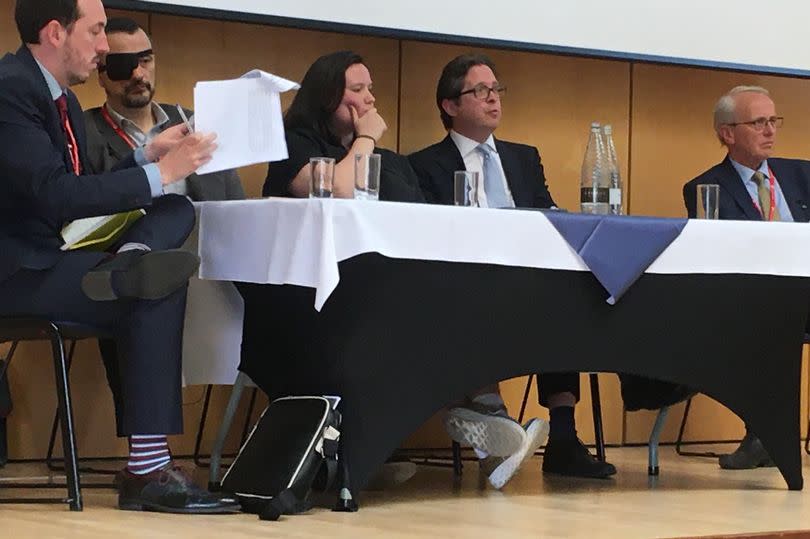Brentwood MP candidates say council tax reform not wanted at local hustings

Council tax reform “will take up a lot of time and a lot of money for potentially not terribly much gain” a hustings meeting for candidates vying for the Brentwood parliamentary seat has heard. Candidates from the Conservative, Labour, Lib Dems and Reform UK parties set out their pitches for the future of the constituency to a group of students at Brentwood School, with one of the questions asked about council tax.
The Institute of Fiscal Studies has said that council tax requires urgent reform but the Labour and Conservative candidates defended a lack of plans to do so from both their parties. The Conservatives have ruled out revaluing and reforming council tax in England as part of what they term their ‘Family Home Tax Guarantee’. While council tax was not included in the Labour manifesto.
Read more: Full list of Essex General Election 2024 candidates hoping to win your vote
Labour’s Gareth Barrett said: “The reason it is very difficult to reform is it can impact different regions of the country in different proportions.”
He added: "Is it a flawed tax? Yes, it is. Is it in my gift to reform? no. Does that mean it won't happen? It's not in the Labour manifesto."
Conservative Alex Burghart said: “The reason why it has not been reformed is because it is an incredibly complex thing to do. If it is going to take up a lot of time and a lot of money for potentially not terribly much gain then there should be other priorities the country should be focusing on.”
The IFS has illustrated the key problems with our current council tax system: that it is out of date, and highly regressive with respect to property value. Average property values have increased by massively different amounts in different parts of England since properties were valued for council tax – around twice as much in London than in the North East of England.
It means council tax is a much higher share of property value for low-value properties than for high-value properties. In Essex, it means people in Jaywick, one of the most deprived parts of the country, are paying at least three times more as a proportion of their property value in council tax compared to the wealthy area of Hutton Mount in Brentwood where house prices exceed £1.3 million.
The IFS adds that evaluation, on its own, would do little to affect the progressivity of council tax across the income distribution. Making council tax proportional to value would see low and middle-income households gain and high-income households lose, on average.
Council tax bands in England are still based on property values in April 1991 – almost 30 years ago. Since then the relative prices of different properties have changed significantly: for example, official estimates suggest the average price in London is now more than six times what it was in 1995, compared with barely three times in the North East.
Moreover, the most valuable properties in 1991 (Band H) attract just three times as much tax as the least valuable properties (Band A), despite being worth at least eight times as much in 1991 and typically even more now, since prices have risen most in areas where they were already highest.
Lib Dem candidate David Kendall said the issue needed to be taken out of the political arena. He said: I'd like to see it looked at in the round cross-party and should be changed.”
Reform UK Paul Godrey said: “I think it should be based on the services people use, not how much money they have.”
David Phillips, an Associate Director at the Institute for Fiscal Studies said the new ‘Family Home Tax Guarantee’ would mean perpetuating the “increasingly absurd situation” whereby the council tax that households pay is based on the value of their property relative to others in England on April 1 1991 – a third of a century ago, when Mikhail Gorbachev was President of the Soviet Union and Chesney Hawkes topped the charts with The One and Only.
He added: “Since this one and only valuation of houses, values have increased by massively different amounts around the country, meaning that at least half are now effectively in the ‘wrong band’.
“Households in the North and Midlands are often in too high a band – and pay too much – while those in London and its environs too low a band – and pay too little – compared to what they would under a modernised tax. In other words, in its current form council tax works against levelling up.”

 Yahoo News
Yahoo News 
